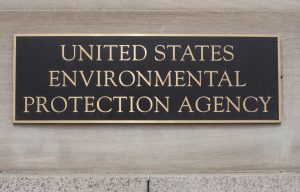As the adage goes, don’t make a promise you cannot keep. An insurance policy, like any other contract, involves a commitment from both sides. For third-party liability policies, an insurer typically  commits to a broad duty to defend the policyholder against any suits alleging claims that have a potential for coverage under the insurance policy. However, when a claim arises, insurers have a financial interest in trying to get off the hook. At times, policyholders need to turn to the courts for help reeling insurers in and forcing them to follow through with their commitments.
commits to a broad duty to defend the policyholder against any suits alleging claims that have a potential for coverage under the insurance policy. However, when a claim arises, insurers have a financial interest in trying to get off the hook. At times, policyholders need to turn to the courts for help reeling insurers in and forcing them to follow through with their commitments.
Recently, in Hanover Insurance Company v. Paul M. Zagaris, Inc., the Ninth Circuit ruled that an insurer had to defend its insured, a real estate brokerage firm, in a proposed class action suit because there was a potential for coverage for at least one of the alleged claims. The plaintiffs alleged that the real estate brokerage firm had received undisclosed kickbacks from the sale of natural-hazard disclosure reports to its clients. Specifically, they claimed that the firm breached its fiduciary duties, deceived its clients by omission, engaged in constructive fraud, and was unjustly enriched, among other things.
 Policyholder Pulse
Policyholder Pulse



 in the underlying litigation were for faulty workmanship and did not constitute an “occurrence.” But other Pennsylvania decisions provide opportunities to find coverage for policyholders who might be in similar situations.
in the underlying litigation were for faulty workmanship and did not constitute an “occurrence.” But other Pennsylvania decisions provide opportunities to find coverage for policyholders who might be in similar situations. Most of the time, such insurer demands are unjustified. But companies should understand when and under what circumstances insurers might seek reimbursement or recoupment of defense costs so they can avoid agreeing to do so unnecessarily or at least plan in advance financially.
Most of the time, such insurer demands are unjustified. But companies should understand when and under what circumstances insurers might seek reimbursement or recoupment of defense costs so they can avoid agreeing to do so unnecessarily or at least plan in advance financially. The particular information request at issue in Ash Grove Cement is known as a “104(e) letter,” which is issued by the EPA under section 104(e) of the Comprehensive Environmental Response, Compensation and Liability Act of 1980 (CERCLA). As companies that have owned or operated a contaminated site know from experience, a 104(e) letter or a similar request under state environmental law typically is the first step in a regulatory enforcement process under which they face strict and retroactive liability for the costs of investigating and cleaning up the site. The ruling in Ash Grove Cement means that defense cost coverage begins at this critical juncture and continues until site investigation and cleanup is completed.
The particular information request at issue in Ash Grove Cement is known as a “104(e) letter,” which is issued by the EPA under section 104(e) of the Comprehensive Environmental Response, Compensation and Liability Act of 1980 (CERCLA). As companies that have owned or operated a contaminated site know from experience, a 104(e) letter or a similar request under state environmental law typically is the first step in a regulatory enforcement process under which they face strict and retroactive liability for the costs of investigating and cleaning up the site. The ruling in Ash Grove Cement means that defense cost coverage begins at this critical juncture and continues until site investigation and cleanup is completed.